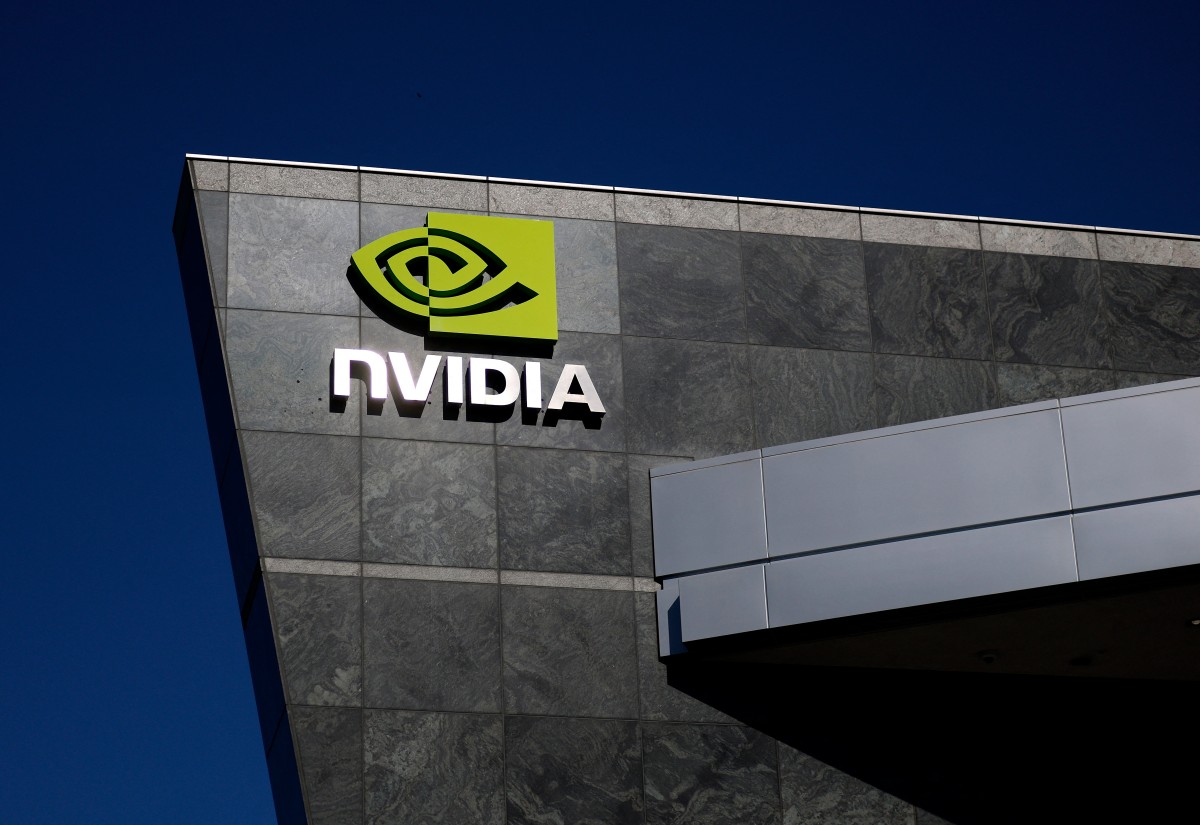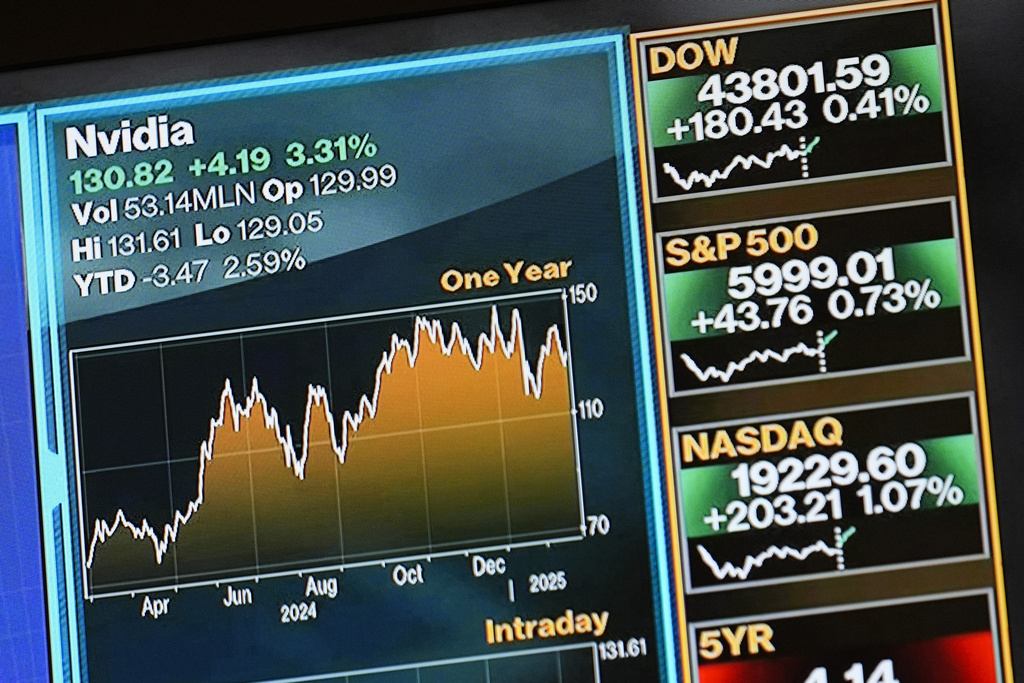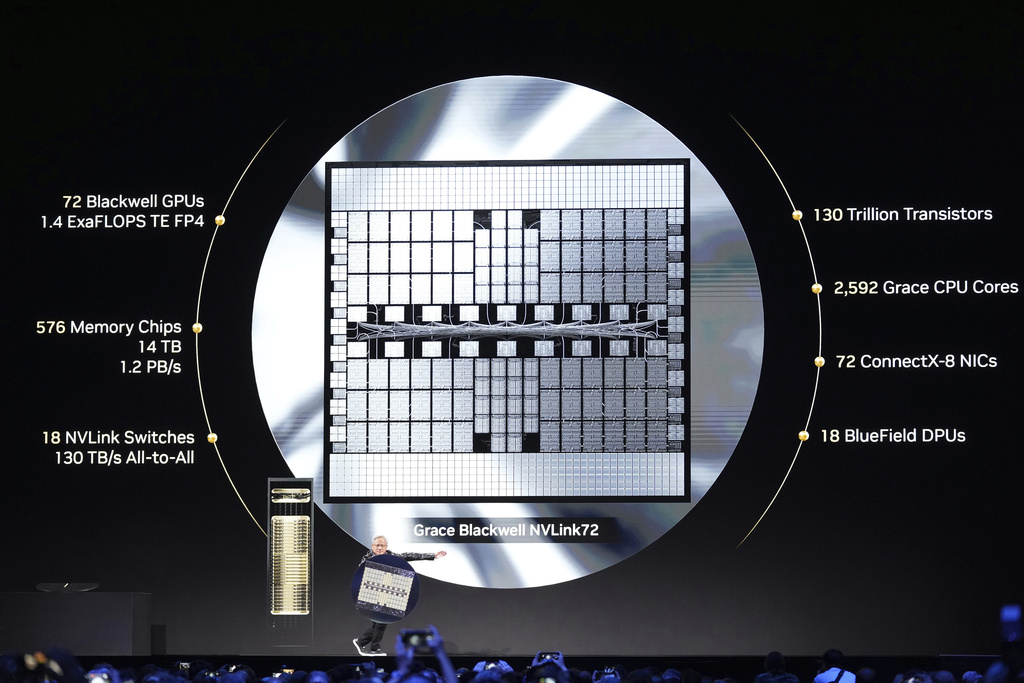
Nvidia's quarterly outlook on Wednesday suggested demand from Microsoft, Amazon and other heavyweight tech companies racing to build out AI infrastructure remains robust, though the outcome failed to significantly quell fears of overspending in the booming industry.
Shares of Nvidia edged down 0.18 percent in Frankfurt on Thursday, having fallen 1.5 percent in extended trade in New York on Wednesday after the dominant AI chipmaker forecast quarterly revenue above analysts' estimates. Microsoft, Amazon, Meta Platforms and Alphabet, among Nvidia's largest customers, were mostly unchanged.
Shares of those companies, among the components of the so-called "Magnificent Seven", have delivered big returns as they raced to dominate emerging AI technology following the debut of ChatGPT in November 2022.
More recently, most of those stocks have stumbled and investors have become more cautious, especially after DeepSeek said it achieved significant AI performance at low cost.
While Nvidia delivered a 78 percent surge in quarterly revenue, it said its first-quarter margin would tighten to about 71 percent from 73.5 percent, lower than the 72.2 percent estimated by analysts, as it ramps production of its new flagship Blackwell AI chips.
"Despite market jitters over DeepSeek's efficient model and early Blackwell deployment challenges, Nvidia's results reaffirm that it continues to lead the AI landscape," said Jacob Bourne, an analyst at eMarketer. "Competitors are making strides but frontier models require the kind of advanced computing resources that Nvidia provides."
ALSO READ: Nvidia unveils robot training tech, new gaming chips and Toyota deal

Still, the highly anticipated earnings report from Nvidia was met with lackluster response from technology companies in Asia on Thursday.
Shares of Taiwan Semiconductor Manufacturing Co (TSMC), Nvidia's main supplier of chips, slipped 0.47 percent, while South Korean chipmakers Samsung Electronics and SK Hynix fell 0.18 percent and 1 percent, respectively.
Tokyo's Nikkei technology sub-index was up 0.2 percent.
"Nvidia's earnings came with much less volatility than expected. The absence of major surprises may have kept sentiment relatively calm," said Yeap Jun Rong, a market strategist at IG.
Losing shine
The launch of low-cost AI models from DeepSeek last month raised fears of a pullback in spending on Nvidia's priciest AI chips and evaporated more than half a trillion dollars of its stock market value in a single day, a record on Wall Street.
Adding to worries, an analyst report suggested Microsoft was scrapping some data center leases.

The Magnificent Seven stocks have retreated from their late-2024 peaks and the group is in correction territory, with the Roundhill Magnificent Seven ETF down more than 11 percent from its Dec 17 closing high.
Nvidia has routinely exceeded analyst estimates over the last two years, but the magnitude of its revenue beats has narrowed as it faces tough comparisons from strong growth a year ago.
"DeepSeek rattled investors but given Nvidia's first-mover advantage and the huge infrastructure investment plans from tech giants like Meta, it's an indication that Nvidia's high-end chips will remain in demand," said Susannah Streeter, head of money and markets at Hargreaves Lansdown.
Magnificent Seven stocks added roughly $11 trillion in market capitalization between the debut of ChatGPT in November 2022 and their combined peak in mid-December 2024, with Nvidia adding $2.7 trillion in market value, making it the world's second-most valuable company at $3.2 trillion.
READ MORE: Nvidia overtakes Apple as world's most valuable company
Nvidia's stock has surged around 1,800 percent in the last five years. Magnificent Seven stocks on average more than tripled in that time, while the benchmark S&P 500 has gained about 65 percent.



